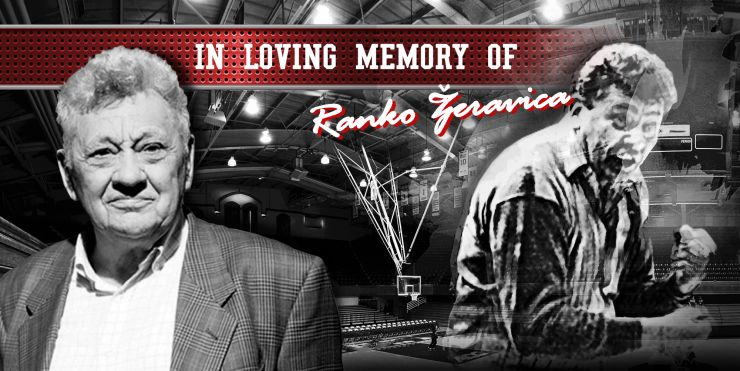Ranko Žeravica - The Olympic champion
We will always remember November 17 as the day when one of the greatest basketball coaches was born. You all know his name. Ranko Žeravica.

Ranko Žeravica (1929-2015) was born in Dragutinovo, a small village located near the town of Kikinda, Serbia. Basketball was his passion, so after finishing his player's career in the early 50s, Žeravica decided to try himself as the basketball coach.
It was the decision that has changed the entire history of basketball in this region.
Žeravica started his coaching career in BKK Radnički, while in 1960 he received a call to work as the assistant of famous Aleksandar Nikolić, who was the head coach of Yugoslavia men's national team at that time. For 5 years Žeravica was working with Nikolić, learning the secrets of basketball coaching, while in 1965 it was time for the apprentice to become the master.
That year Ranko Žeravica was named the head coach of Yugoslavia men's basketball team. It was the start of probably the most successful era for this region, when it comes to basketball.
Under his leadership, Yugoslavia has won a silver medal at the 1967 FIBA World Championship in Uruguay, a silver at the 1968 Olympic Games in Mexico City, a silver at the 1969 FIBA EuroBasket in Italy, then a gold at the 1970 FIBA World Championship in Ljubljana and a silver at the 1971 FIBA EuroBasket in West Germany.
But, that is not all. His biggest achievement came in 1980 when Žeravica led Yugoslavia men's national team toward the gold medal at the Olympic Games in Moscow! It has remained the one and only Olympic gold for this region until this day.
After that Žeravica coached Yugoslavia at just one more major tournament and, of course, he has won a medal - It was a silver at the 1982 FIBA World Championship in Colombia.
Ranko Žeravica had also made some remarkable achievements while coaching the two most famous Serbian clubs - Partizan and Crvena zvezda, while he had also worked abroad, mostly in Spain in Italy.
In 2007, he was enshrined into the FIBA Hall of Fame.

